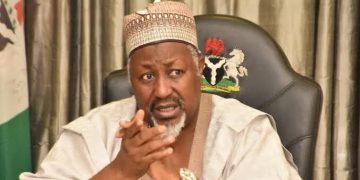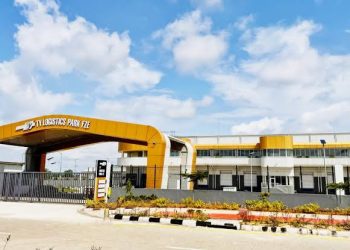The Institute of Chartered Accountants of Nigeria (ICAN) has presented its Accountability Index (ICAN-AI) to the World Bank Group, seeking financial and technical support to expand its reach and impact across Africa.
Leading the delegation, ICAN President, Chief Davidson Chizuoke S. Alaribe, FCA, was accompanied by key officials, including Mr. Oladele Oladipo, FCA, Chairman of the ICAN-AI Technical Subcommittee; Mr. David Brown, FCA, Chairman of the Board of Data and Information Faculty; and members of the ICAN Governing Council. The team met with the World Bank’s Country Director, Dr. Ndiame Diop, represented by Deborah Isser, Lead Governance Specialist.
Promoting Financial Accountability Across Africa
During the meeting, Chief Alaribe described the ICAN Accountability Index as a crucial tool in combating financial mismanagement. He emphasized its rigorous quality assurance process and growing international recognition, with institutions in Zimbabwe and Kenya expressing interest in adopting the framework.
Highlighting the self-funded nature of the initiative, Chief Alaribe disclosed that while initial funding came from the UK’s Department for International Development (DfID) through the International Federation of Accountants (IFAC), ICAN has since independently financed assessments at an annual cost of $40,000. He urged the World Bank to provide financial and technical backing to sustain the Index, positioning it as an alternative to the *States Fiscal Transparency, Accountability, and Sustainability (SFTAS) initiative.
strengthening Governance and Global Collaboration
Chief Alaribe reaffirmed ICAN’s commitment to strengthening public financial accountability and governance. He cited endorsements from global stakeholders, including the World Bank, PEFA (Public Expenditure and Financial Accountability), IFAC, and PAFA (Pan African Federation of Accountants).
Expressing optimism for a strong partnership, he called for collaboration to expand the ICAN-AI’s reach, reinforcing its role as a benchmark for financial accountability across Africa.
Abuja, Nigeria – The Institute of Chartered Accountants of Nigeria (ICAN) has presented its Accountability Index (ICAN-AI) to the World Bank Group, seeking financial and technical support to expand its reach and impact across Africa.
Leading the delegation, ICAN President, Chief Davidson Chizuoke S. Alaribe, FCA, was accompanied by key officials, including Mr. Oladele Oladipo, FCA, Chairman of the ICAN-AI Technical Subcommittee; Mr. David Brown, FCA, Chairman of the Board of Data and Information Faculty; and members of the ICAN Governing Council. The team met with the World Bank’s Country Director, Dr. Ndiame Diop, represented by Deborah Isser, Lead Governance Specialist.
Promoting Financial Accountability Across Africa
During the meeting, Chief Alaribe described the ICAN Accountability Index as a crucial tool in combating financial mismanagement. He emphasized its rigorous quality assurance process and growing international recognition, with institutions in Zimbabwe and Kenya* expressing interest in adopting the framework.
Highlighting the self-funded nature of the initiative, Chief Alaribe disclosed that while initial funding came from the UK’s Department for International Development (DfID) through the International Federation of Accountants (IFAC), ICAN has since independently financed assessments at an annual cost of $40,000. He urged the World Bank to provide financial and technical backing to sustain the Index, positioning it as an alternative to the *States Fiscal Transparency, Accountability, and Sustainability (SFTAS) initiative.
Strengthening Governance and Global Collaboration
Chief Alaribe reaffirmed ICAN’s commitment to strengthening public financial accountability and governance. He cited endorsements from global stakeholders, including the World Bank, PEFA (Public Expenditure and Financial Accountability), IFAC, and PAFA (Pan African Federation of Accountants).
Expressing optimism for a strong partnership, he called for collaboration to expand the ICAN-AI’s reach, reinforcing its role as a benchmark for financial accountability across Africa.






















































